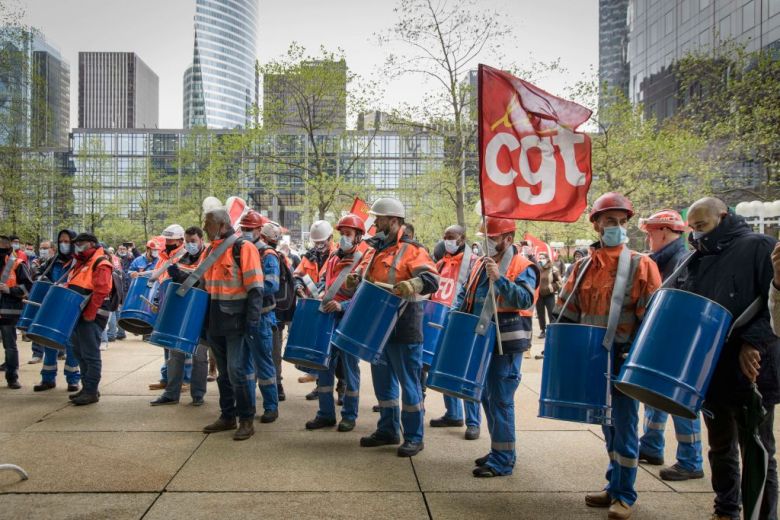Dwindling petrol supplies in France have been headline news for weeks now as the strikes ramped up – however, the latest developments have set a collision course with unions as tensions continue to escalate.
The General Confederation of Labour (CGT) have been disputing with major oil companies TotalEnergies and Exxon Mobil, which has now led to government intervention to try and resolve the issue.
This was after some regions in France were forced to start rationing fuel – leading to miles of tailbacks in some areas at the stations that had remained open.
Prime Minister of France Elisabeth Borne revealed on Tuesday that her government would be prepared to use force to order staff at Exxon and Total sites back to work.
Employees at the oil giants have been striking over wages amidst the cost of living crisis – and following the government intervention, the CGT described the plans as ‘violent’.
The CGT also suspended all negotiations regarded the strikes.
There have been walkouts and fewer maintenance checks at the refineries ran by the two oil companies forcing over 60% of the country's refining capacity offline and blocked distribution from fuel depots.
As a result, 31% of fuel stations across France were suffering from supply chain issues.
- Driving in France – your complete guide
- Driving from the UK to France – all you need to know
- Your guide to French toll roads – costs, signs, and advice
Borne told the Government: "We want this situation to change fast. I have therefore asked the prefects, as permitted by law, to requisition the personnel needed for the functioning of the company's depots."
Following the announcement on Tuesday, the government stated that they were already seeing signs of improvement, and TotalEnergies announced that they would hold talks with unions who were not striking.
They also said that CGT could join if they called of the strikes – which the union described as ‘blackmail’.
Esso France employees who work with a different union reached an agreement on pay increase (6.5%) and bonuses on Monday. CGT is demanding a pay increase of 10%.
The disruption has impacted diesel fuel prices as refining margins hit record highs.
Due to the strikes, the French Government has imported 37% more fuel compared to last year – further adding to the global issues surrounding fuel prices and availability.
To keep track of the latest fuel prices on the continent, the RAC has an up-to-date guide to petrol and diesel prices in Europe.
Will the UK reach a similar breaking point over fuel prices and conditions? What's your take on the situation in France? Leave your comment below.

Cheaper than AA or we’ll beat by 20%^
• Roadside cover from £5.49 a month*
• We get to most breakdowns in 60 mins or less
• Our patrols fix 4/5 breakdowns on the spot










